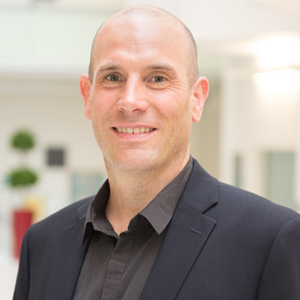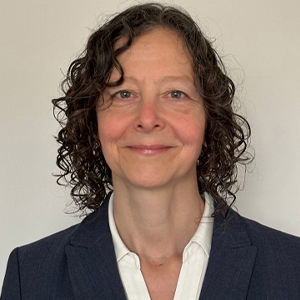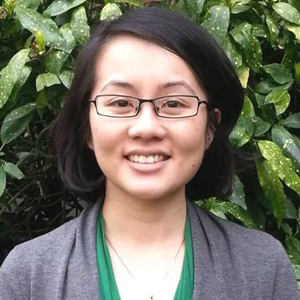Meet the research teams tackling lung health threats
The air we breathe is a key driver of health and wellbeing. There are growing concerns about how the air in our environments is affecting our health, particularly with the rise in wildfires, uptake of vaping, and occurrences of lung cancer among people who have never smoked.
These new, emerging, and existing threats can lead to adverse health outcomes including stroke, heart attacks, infections, and headaches. New research will unlock discoveries and innovations to protect our lungs, minimize the effects of known threats, and help inform public health decisions.
Through the Team Grants in Lung Health, CIHR and partners aim to improve our understanding of diverse influences on lung health to fill evidence gaps for life-altering and fatal respiratory conditions. CIHR is leading this initiative in partnership with the Canadian Cancer Society, the Canadian Lung Association, the Cancer Research Society, GSK, the Heart and Stroke Foundation of Canada, and Mitacs, and in collaboration with the Canadian Thoracic Society, Children's Healthcare Canada, Cystic Fibrosis Canada, and Health Canada.
Nine teams based at research institutions across the country will lead projects focused on a range of lung health concerns including exposure to poor air quality and wildfire smoke, lung cancer, asthma, and the effects of vaping.
Studying climate, air quality, and lung health

Dr. Chris Carlsten
Lungs on fire: Wildfire smoke, incident diseases, susceptible populations, and community values in Canada
A team led by Dr. Chris Carlsten at the University of British Columbia will investigate the long-term health effects of exposure to wildfire smoke and examine whether biological and social factors influence how wildfire smoke affects the lungs.
This research will help establish whether exposure to wildfire smoke plays a role in initiating lung diseases like asthma, chronic obstructive pulmonary disease, and lung cancer. The knowledge developed will help enhance clinical and public health guidance, informing tailored advice for individuals when wildfire smoke is in the air.

Dr. Anne Hicks
Interventions to address exposure and health outcomes linked with air pollution and climate change – an interdisciplinary team approach
How does air pollution affect children with asthma? Led by Dr. Anne Hicks at the University of Alberta, a diverse team is finding answers by studying the connection between outdoor air quality and children's asthma attacks, as well as by testing chemicals in household air to see how these influence children.
The team hopes to find ways to protect children from air pollution and to identify which household products are most likely to make asthma worse.
Understanding the biological effects of vaping

Dr. Janice Leung
The Canadian lung outcomes in users of vaping devices (CLOUD) Study
Vaping is a prevalent habit among people in Canada and it is important to better understand its long-term effects on lung health.
Dr. Janice Leung from the University of British Columbia is leading a team to measure the impact of vaping on our lungs using breathing, imaging, exercise, and airway sampling techniques. The findings of this study will help Canadians of all ages make informed decisions about vaping.
Investigating vaping youth behaviours

Dr. David Hammond
Youth behaviours, vaping and lung Health
A study led by Dr. David Hammond at the University of Waterloo will examine the chemicals in vaping products and how they differ across flavours and brands. The team will follow young people who vape over time to assess any early indicators of health damage.
As one of the largest studies to examine the chemicals in vaping products and their health effects, the findings will help inform vaping policies in Canada and around the world.
Inflammation and its effects on lung health

Dr. Paul Kubes
Wildfire particles exacerbate asthma by increasing inflammation through neural and microbial alterations
Why do wildfires exacerbate asthma symptoms so severely? Using microscopes that allow them to look inside the lungs, a team led by Dr. Paul Kubes at Queen's University and Christina Thornton at the University of Calgary will examine what happens to the lungs of people with asthma when exposed to wildfire pollutants.
The research team will test repurposing different therapeutics already known to be safe for humans that could reduce, prevent, or treat serious asthma symptoms.

Dr. Benjamin Smith
Immune dysanapsis: Updating the paradigm of inflammation and lung health trajectories in diverse populations to achieve lifelong health for all
A project led by Dr. Benjamin Smith at McGill University is investigating how factors affecting lung development can both decrease our resilience to and activate our inflammatory response to stressors in the environment, such as tobacco smoke and air pollution. People with lower tolerance to these stresses may have worse lung health and greater disease risk in response to exposures across the lifespan.
This research will help identify promising pathways to achieve lifelong lung health.
Implementing best practices around lung health data

Dr. Sanja Stanojevic
Harnessing data to improve lung health in Canada: Data4LungHealth
A team headed by Dr. Sanja Stanojevic at Dalhousie University will establish a safe and secure data infrastructure network to make it easier for Canadian researchers to work together to better understand lung health.
The Scientific and Health Assets in Respiratory Research Network will also establish a bridge to international data sources to bolster Canada's contributions to global lung health research.
Tackling lung cancer

Dr. Pam Ohashi
Unconventional innate-like T cells and innate lymphoid cells as a foundation for novel immunotherapeutic and adoptive cell therapy strategies in metastatic non-small cell lung cancer
There is limited understanding about the unconventional immune cell populations involved in attacking lung cancer. A project led by Dr. Pam Ohashi at the Princess Margaret Cancer Centre will work to identify and develop new immune-related strategies to provide treatment options for patients with lung cancer.
The team will also work to determine which patients will likely benefit from standard immunotherapies, and which patients may respond better to these novel investigational immunotherapeutic treatments.
Understanding asthma, chronic cough, chronic obstructive pulmonary disease, and the lungs

Dr. Manali Mukherjee
Canadian consortium for understanding the role of airway mucus occlusions in cough, COPD and asthma (CanMuc)
Mucus plugging, when airways are blocked by mucus, can play a profound role in some of the most prevalent chronic respiratory diseases. A consortium led by Dr. Manali Mukherjee at McMaster University is working to pioneer innovative methods to detect, treat, and manage mucus plugs.
Through this research, the team hopes to discover new accessible and equitable treatment options for people living with lung diseases.
- Date modified: